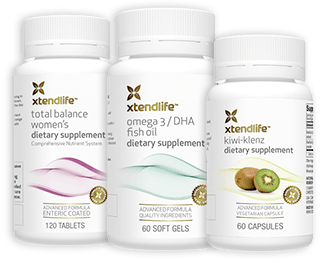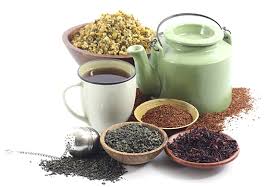5 Minerals You Can't Live Without
The minerals needed by the human body include major ones like calcium, phosphorus, potassium, sulfur, sodium and magnesium, along with minor or “trace” minerals like zinc, molybdenum, iodine and selenium. You can’t do without any of them for an extended period of time. But new research shows that 5 of these are particularly important and many people fail to get enough of them in their regular diet.
Let's take a look at the 5 key minerals you need to get:
Selenium
In addition to being a mineral, selenium is an effective antioxidant. Antioxidants of all kinds help to protect the body from free radicals. Free radicals damage cells throughout the body and play a major role in the aging process. Radicals are involved in cancer and heart disease. Antioxidants like selenium may reduce cancer and heart disease risks.
New research has shown that low blood levels are commonplace, due in part to soil depletion. There is a lack of the nutrient in common foodstuff such as wheat and other cereals.
We are all exposed to environmental toxins such a phthalates. We can avoid them but not completely. The toxins have a detrimental effect on the liver. New research has shown that selenium helps to protect the liver from environmental toxins like phthalates.
Like the other minerals you will read about here, selenium plays a role in thyroid function, along with helping to regulate hormonal activity of all kinds. The trace mineral may not be as important as iodine for a healthy thyroid but it is still important.
Selenium has a protective effect on the kidneys. Deficiency is associated with acute and chronic kidney disease.
The nutrient has a protective effect on the heart as well. Researchers have found that low selenium status is associated with an increased risk of heart disease and “all-cause mortality”.
As people age, “frailty” becomes a problem. The frailty syndrome encompasses poor muscle tone, weak muscles, increased fatigue and poor bone strength. Those things lead to an increased risk of falls and fractures that can be life-threatening in an elderly person. Researchers believe that the early identification of frailty may prevent loss of function and the possible consequences. One of the possible identifiers is low selenium levels, especially when combined with low levels of other minerals.
Caution should be used when choosing a selenium supplement. Too much selenium is just as bad as too little. A supplement should not provide more than 100% of the recommended daily intake for selenium. The same is true of the other minerals listed here. You need just the right amount, not too much and you should still be getting some of these nutrients from the foods that you eat.
Iodine
Soil depletion is also a part of the iodine deficiency problem, just as it is with selenium. Because of over-farming, over-population and no good way to increase the soil’s mineral content, our food is simply less nutritious than it was at one time. Scientists see this when they examine the nutritional content of all kinds of vegetables.
Iodizing salt has reduced the number of iodine deficiency disorders, especially in developing nations. Numerous studies have shown that iodizing salt is effective, as long as people have access to and consume enough of the salt. This is somewhat paradoxical as you will see when you read about potassium. Excessive salt in the diet contributes to high blood pressure. So, many people are avoiding salt and iodized salt in particular. In the US, we are seeing a preference for natural sea salt, which provides no iodine. You must get this nutrient from somewhere.
Iodine is needed for normal thyroid function. Thyroid diseases often develop as a result of iodine deficiency. A healthy thyroid is essential for normal bodily functions of all kinds. Skin health, hair growth, cellular metabolism, weight maintenance, joint function, fluid balance, fertility, reproduction and the menstrual cycle…those are just some of the bodily functions regulated the thyroid gland.
New research has shown that deficiency is associated with autism and the severity of autism. Pregnant women have an increased risk of iodine deficiency leading to thyroid insufficiency and damaging effects to both the mother and the fetus. Current supplementation recommendations may be inadequate according to researchers. In addition to increasing the risk of autism, lack of iodine during pregnancy may lead to mental retardation and deafness in the child.
Molybdenum
Soil depletion again is the reason that you need a molybdenum supplement. Lack of the nutrient has similar effects to those of lack of iodine. The trace mineral is needed for healthy thyroid, healthy skin, healthy hair, normal metabolism, etc.
New studies have shown that molybdenum deficiency is associated with an increased risk of esophageal and oral cancer. It seems that the mineral has some antioxidant and anti-inflammatory activity.
Potassium
Low intake of potassium is associated with hypertension among U.S. adults. This is especially true when low potassium intake is combined with high sodium intake. Sodium raises blood pressure. Potassium has the opposite effect. As you may know, hypertension is a risk factor for heart disease.
Currently the recommended intake for potassium is 4700 milligrams per day. Long-term studies have shown that potassium consumption has increased slightly over the last 22 years but people are still getting far less than the recommended amount for reducing the risk of high blood pressure.
Reducing sodium, increasing potassium, limiting alcohol and following a diet like DASH can reverse hypertension without medication. Evidence indicates that medications for hypertension may actually increase the risk of heart disease. It’s best to take the natural approach.
You can increase your potassium intake through supplementation and by increasing your intake of potassium-rich foods such as bananas, potatoes, white beans, beet greens and orange juice. Ideally, you should allow potassium-rich foods to replace high sodium foods in your diet. Foods high in sodium include processed and packaged foods like canned soups. In general, salty foods are high in sodium.
Zinc
Zinc is important for normal growth and development. It is needed throughout life for normal immune system function. It plays a role in eye health, particularly in the health of the retina where central vision occurs.
Some of the new “eye health” supplements contain zinc. Research indicates it may be beneficial for the prevention and treatment of age-related macular degeneration. A common cause of blindness in the elderly, the degeneration affects the macula, an important part of the retina.
Like selenium, zinc has a protective effect on the liver. New studies have shown that zinc plays a role in minimizing inflammation. Like free radical damage, inflammation is a cause of cellular aging. It plays a role in cancer and heart disease, as well as chronically painful conditions like arthritis.
When you are considering a zinc supplement, keep in mind what I mentioned about selenium. Too much is just as bad as too little. The better multi-nutritional supplements contain low doses of these trace elements, along with many of the other nutrients that you need on a daily basis to enjoy good health.
If you're interested in a good multi-nutrient supplement, you can check out the What We Take section to learn more about how to choose a high quality product for your health.
Related Articles:
Five Key Herbal Supplements For Optimal Health
Five Vitamins You Need To Consider
Five Amino Acids You Must Include
Read more on our nutritional supplements page or return to the HSG home
Resources...
Search our site...
PREMIUM SUPPLEMENTS
The most advanced herbal supplements on the market
BULK HERBS AND TEAS
Need bulk herbs, teas, supplements and capsules?

